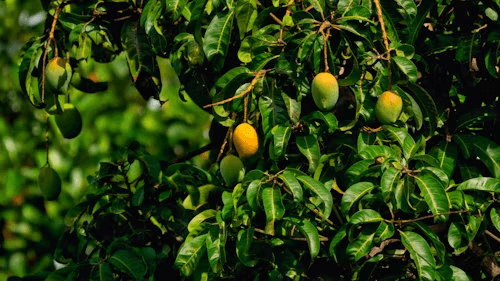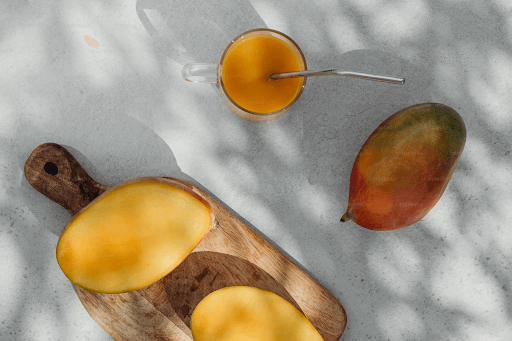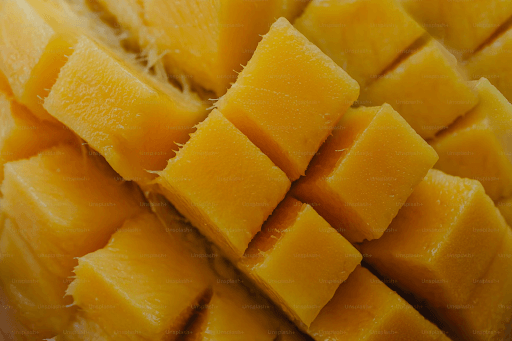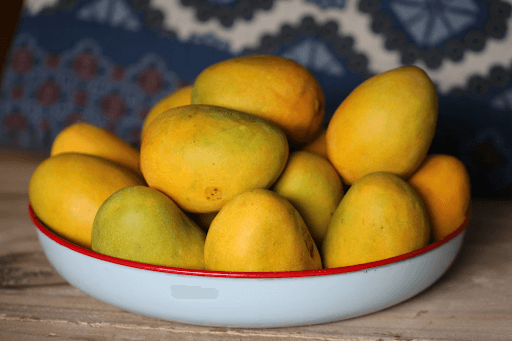1. Nutrient Powerhouse
Mangoes have essential vitamins and minerals, including vitamin C, vitamin A, potassium, and folate. It supports overall health and immunity. Fresh mango is packed with essential nutrients, with just one cup (165 grams) providing nearly 67% of the Daily Value (DV) for vitamin C. This vital, water-soluble vitamin supports the immune system, facilitates iron absorption, and promotes cell growth and repair. Mango is also rich in folate, multiple B vitamins, and vitamins A, C, K, and E, which contribute to immunity enhancement. Additionally, mango contains digestive enzymes, water, dietary fiber, and other compounds that support various aspects of digestive health.






